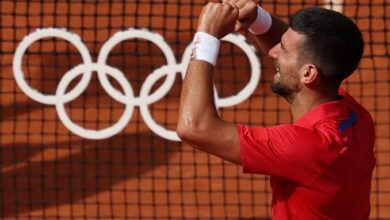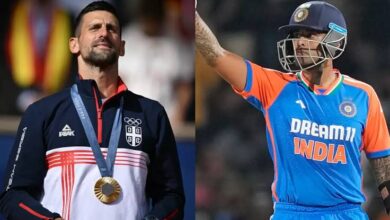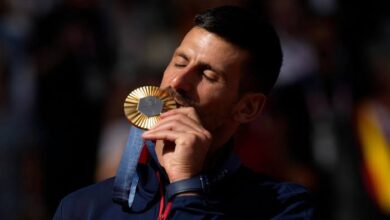Paris Olympics 2024: Rafael Nadal and Carlos Alcaraz Exit Doubles After Defeat to Americans Krajicek and Ram

Rafael Nadal’s bid for Olympic glory ended on Wednesday night as he and Carlos Alcaraz were ousted from the men’s doubles tournament by the American duo of Austin Krajicek and Rajeev Ram. The quarterfinal match, held at Court Philippe Chatrier, saw the Spaniards defeated 6-2, 6-4.
A Heartfelt Farewell at Roland Garros
Nadal, 38, who has won a record 14 French Open titles at this iconic venue, faced a raucous crowd and a determined American team. Despite a valiant effort, Nadal and Alcaraz could not overcome the fourth seeds. The match’s decisive moment came when Ram broke Alcaraz’s serve, leading to a crucial 4-3 advantage in the second set. The Spaniards disputed the call, but their protest was in vain.
Nadal’s Olympic Legacy
Nadal’s Olympic career, which includes gold medals in singles (2008) and doubles (2016), appears to be concluding as he has not yet indicated plans for the 2028 Los Angeles Olympics. His recent loss to Novak Djokovic in singles and this doubles defeat likely mark the end of his Olympic journey.
Emotional Departure and Legacy
As Nadal exited the court, he took a moment to soak in the ambiance of the venue that has been central to his illustrious career. Alcaraz, who has four Grand Slam titles, placed a comforting hand on Nadal’s shoulder as they left the court together.
Krajicek and Ram, both accomplished in doubles with former world No. 1 rankings and Grand Slam titles, received coaching advice from tennis legends Bob and Mike Bryan, adding to their edge.
Nadal’s popularity at Roland Garros is undeniable, with a statue erected in his honor outside Chatrier. His future remains uncertain, leaving fans and the tennis world pondering if this will be his final appearance at the French Open.



